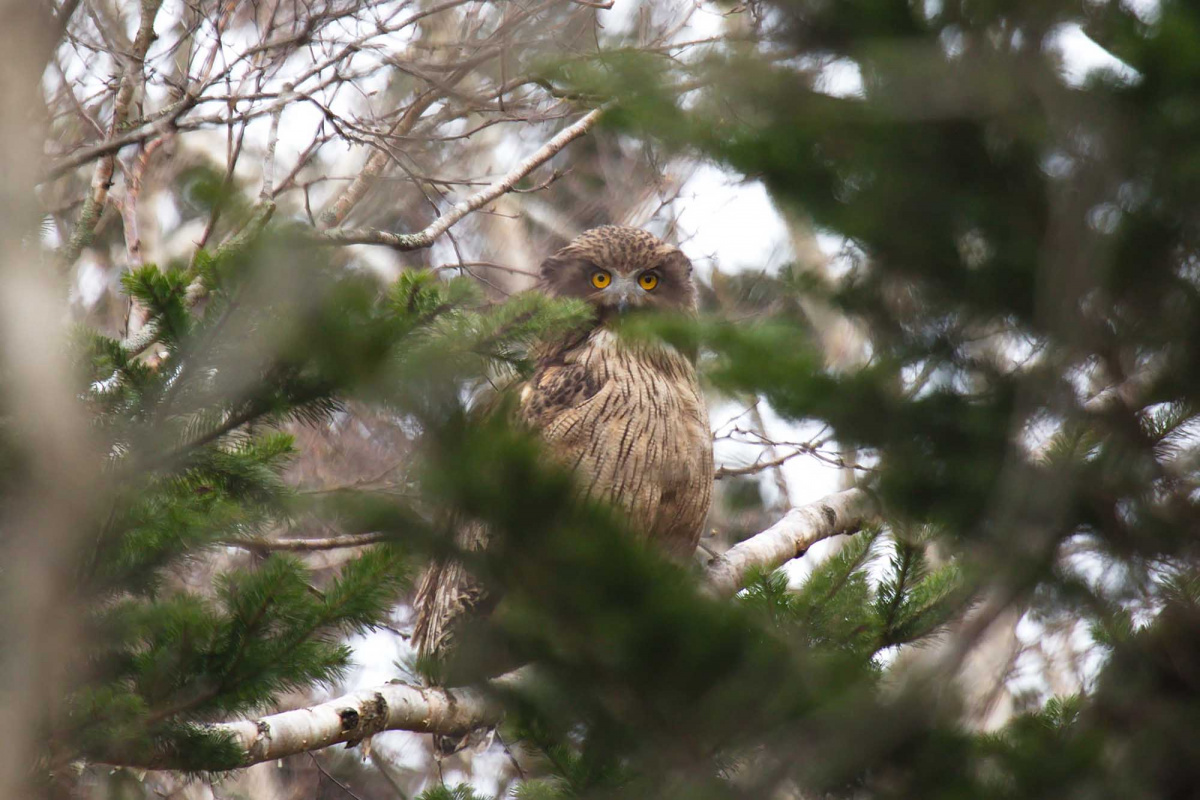

The press service of the Kuril Nature Reserve has reported the results of the 2024 nesting season for the endangered Blakiston's fish owl, which has been the most successful in the history of observations. Scientists recorded 18 fledglings. This year, artificial nests that had been unused by birds for a long time were occupied. Experts believe that young pairs of fish owls, recently formed families, may have settled in them.
Over the past 20 years, the number of known territorial pairs of fish owls has increased from 23 to 41, and nesting has been confirmed for 31 pairs. New pairs of birds are forming and occupying new territories on the island. All of this indicates an increase in the population of this species on Kunashir. Nevertheless, the fish owl remains a very rare bird and requires constant monitoring.
Over the past nine years, scientists have recorded 86 cases of fish owl nesting. During this time, 81 chicks successfully left the nest. In 17 cases, there were 2 chicks in the nest, in 47 - one chick, and in 15 - a dead clutch. The main reasons for the death of clutches are usually disturbance of the bird during incubation and cases of laying unfertilized eggs. Sometimes nests are destroyed by sables and bears.
Fish owls live not only in natural tree cavities. They successfully inhabit artificial nests, which scientists have been installing since 2016. Currently, 54 artificial hollows based on a 200-liter plastic barrel or a sea buoy have been installed on Kunashir. Nesting of the fish owl has been observed at least once in 27 of them, and traces of visits have been noted in 11. Another 16 nests have not yet been visited by birds.
Nests can be found not only on Kunashir. Twenty years ago, two artificial nests were installed on the territory of the "Small Kurils" reserve, but so far there have been no signs of them being visited by fish owls.
The fish owl is one of the largest owls in the world. The island subspecies of this bird inhabits the forests of the eastern part of Hokkaido Island in Japan and is also found on the Russian island of Kunashir. Due to deforestation and a reduction in the food base, the population of fish owls throughout the species' range has been severely undermined. The Kuril Nature Reserve has developed a set of measures to restore its population.
 Blogs
Blogs
